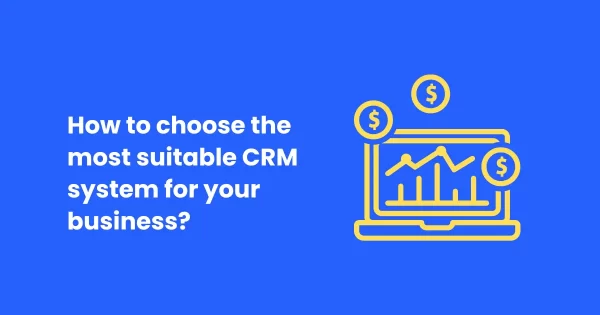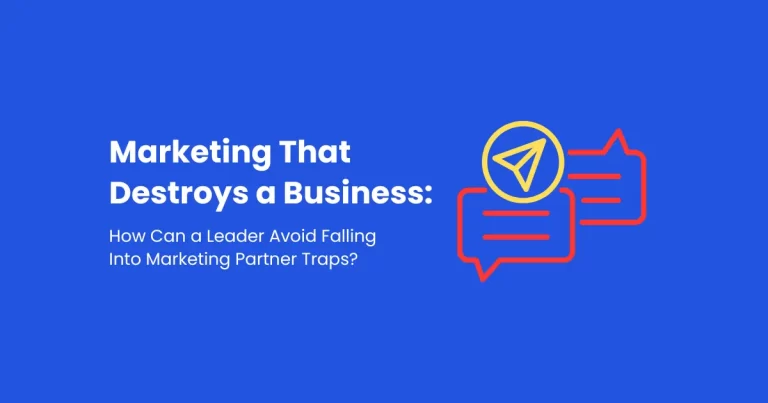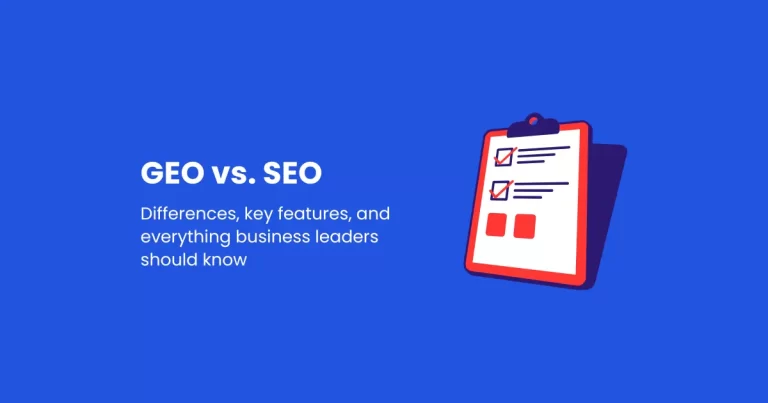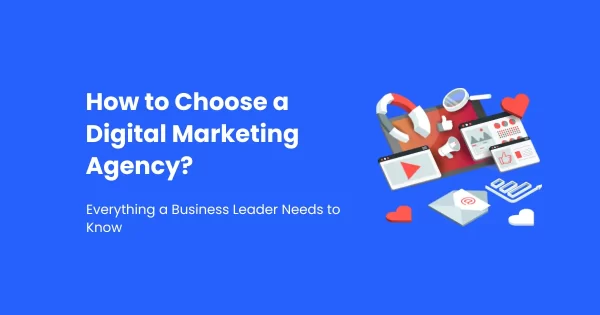How to Choose the Best CRM System for Your Business?

Today, a CRM system is no longer just a tool for managing sales. It has become one of the most valuable sources of customer data used in modern digital marketing and advertising campaigns powered by artificial intelligence (AI) and machine learning—such as Google Ads or Meta Ads.
When businesses use high-quality CRM data, the return on ad campaigns can increase dramatically—sometimes even tenfold. Companies that successfully integrate the best CRM into their marketing and sales processes gain a significant competitive advantage over those that don’t leverage such data. The numbers speak for themselves: if you invest at least 1,000 EUR/USD per month in Google Ads, CRM data-driven campaigns can boost accuracy and performance by 50% to 200% or more. In practice, that means achieving the same or even better results with half the budget. Over a year, this optimization can generate over 6,000 EUR/USD—often enough to cover the implementation and maintenance of most CRM systems.
In short, CRM data is becoming an essential part of effective digital marketing. If you’re not yet using a CRM system or haven’t connected it with your ad campaigns, now is the best time to start—so you can enjoy measurable results later.
In this article, we will talk about:
- The importance of CRM today: CRMs have become a key source of data that boosts the effectiveness of advertising campaigns.
- Why choosing a CRM is difficult: Selecting a system can be challenging due to the variety of features, integrations, and nuances of business processes.
- Tip No. 1: Select 5 popular and reliable systems that are worth testing.
- Tip No. 2: Analyze how well the systems fit your industry and rely on objective user reviews.
- Tip No. 3: Allocate the same amount of time to each system and conduct practical testing based on real business processes.
- Tip No. 4: Evaluate CRMs based on intuitiveness, usability, and adaptability—not just price.
- Additional insights
- FAQ
Choosing the Best CRM System for Your Business: A Practical Guide
How to Choose the Right CRM System Without Wasting Time and Budget
We reviewed and tested dozens of the most popular systems worldwide. At first glance, choosing the right one might seem simple—but the reality is quite different. It’s a real challenge, especially if you’re unsure what to focus on.
One day is definitely not enough to make an informed decision when evaluating a system. You need to dive deep into its functionalities, how well it fits your business processes, available integrations, and support quality. What’s more, vendors rarely highlight their limitations or take the time to understand your internal workflows.
To truly understand the capabilities of different systems, we not only tested them but also completed official training and passed certification exams. However, in the end, we realized we could have made the right decision much faster—if only we had known from the beginning which criteria truly matter.
That’s why we’ve prepared a clear set of recommendations—how to choose a CRM system quickly, without wasting time or budget, and with a lot less stress.
Before we walk you through the key points, it’s important to mention that these recommendations are not intended for large corporations or enterprises with extensive sales teams. Our tips are tailored for small to medium-sized businesses with up to 10 sales professionals.
Tip No. 1: Select 5 CRM Systems Worth Testing
It’s easy to find online articles listing the most popular systems in the world. Even ChatGPT can generate a long list for you, outlining each system’s pros and cons. However, many of these articles are promotional or written primarily for SEO purposes, so the information they provide isn’t always objective.
Still, you’ll notice that certain systems come up repeatedly across sources—that’s a sign they’re worth considering. Your task is to critically and constructively assess the information you find and narrow it down to five CRM systems you’d like to compare and test. We don’t recommend choosing more than five, as too many options may overwhelm rather than help you.
It’s also a good idea to consult tools like ChatGPT for suggestions and insights. Just remember: always assess the information with a critical mindset. This tool can’t evaluate your team’s skills, internal processes, or organizational context—factors that are crucial when choosing a CRM.
What should you base your selection on?
- Choose well-established CRM systems with a strong track record and positive reviews.
- Check whether there are enough local or international experts who can help with implementation and support.
- Make sure the system is regularly updated and that its pricing aligns with your budget.
We strongly recommend avoiding niche or untested CRMs—and especially developing your own from scratch. That route is time-consuming, resource-heavy, and often much more expensive than expected.
Tip No. 2: How to Select CRM Systems – Review Analysis and Industry Context
Before making a decision, take the time to check how widely the selected CRM system is used in your specific industry.
This will help you assess whether the solution is truly suited to your line of work.
It’s also worth reviewing user feedback online. Here are a few important things to keep in mind:
- Reviews are subjective – people’s experiences and expectations vary, so they shouldn’t be treated as absolute truth.
- Some reviews may be fake or paid for. View them critically. It’s a good idea to compare feedback from multiple sources—from official websites to niche forums.
- Pay particular attention to negative reviews – they often reveal real problems. However, approach them with caution as well—technology evolves quickly, and some issues may already be resolved.
Based on the information gathered, user experiences, and your business needs, narrow your list from 5 to 3 systems that seem the most promising.
These are the ones you should test hands-on—only then will you know if they truly fit your business.
Tip No. 3: How to Test CRM Systems Quickly, Objectively, and Effectively
To avoid wasting time and prevent long, exhausting testing sessions, we recommend allocating the same amount of timeto test each CRM system. In our experience, one hour per system is usually more than enough. If you’d like to explore more deeply, dedicate two or three hours. The most important thing is that each system gets equal time.
The amount of time you spend on a system will influence your decision. If you spend more time with one, it might appear “better” simply because you’ve gotten to know it more. That’s why we suggest following a simple rule: equal testing time = more objective results.
Almost all CRM systems offer free trial versions—typically for 14 days or even longer. If needed, most providers can extend this period.
But here’s the key: you don’t need 14 days. The goal is to choose the right system as quickly and efficiently as possible. Dragging out the decision only complicates the process.
We recommend testing in two stages:
- Get familiar with the system – explore the interface, assess the user experience, functionality, speed, and overall usability.
- Move to practical testing – simulate your typical sales process: add a new client, create a deal, assign responsible team members, and set up tasks.
This hands-on approach will help you realistically assess whether the CRM system fits your business needs and workflows.
Tip No. 4: How to Evaluate CRM Systems and Make the Final Decision
After testing a few systems, your intuition will usually hint at which one feels like the best fit. Still, there are a few key aspects worth considering before making the final decision.
When choosing a system, the most important factors are intuitiveness and ease of use—the system should be easy to understand and comfortable to work with. A user-friendly CRM will be easier to adopt and integrate into your daily operations. If pricing differences between systems are minimal, prioritize usability over cost—a more convenient system will help you work more efficiently and avoid unnecessary stress.
Most CRM systems are offered as SaaS (Software as a Service), which means they can be easily replaced if your business needs evolve. So, there’s no need to chase the “perfect” solution—in many cases, a simpler system will be far more beneficial than a complex, expensive one with features you’ll never actually use.
If you’d like to explore the most popular CRM systems, check out our article: The Best CRM Systems for Small and Medium-Sized Businesses.
Simplified CRM Selection Process
Step 1: Know Your Business Goals and Needs

Step 2: Gather Input from Different Business Departments

Step 3: Create a List of Essential Features Your Business Will Need

Step 4: Decide Which CRM System Is the Best Fit for You

Step 5: Choose the Best Providers That Match Your Needs and BudgetStep 6: Select a CRM System and Begin the Implementation Process

Step 6: Select a System and Begin the Implementation Process

After thoroughly analyzing all options and selecting the CRM system that best fits your business, it is essential to ensure that you strategically leverage all of its advantages. The data collected within your CRM can significantly optimize your digital marketing processes. When used correctly—for example, by feeding advertising platforms’ artificial intelligence with this data—you can not only gain a competitive advantage but also achieve several or even dozens of times higher sales results.
Read more here: Smart use of CRM data in digital advertising.
FAQ
What should you do if you need a custom CRM solution?
If it seems like none of the CRM systems are a good fit for you, it’s worth first reviewing your sales process and evaluating a few key aspects. Is your sales process truly unique—or is it simply unstructured, illogical, or not optimized? Often, it’s enough to adapt your process to follow sales best practices, and then choose a system that supports it.
Most modern CRM systems—such as HubSpot, Zoho, or Pipedrive—are flexible enough to be configured around your specific business needs. If standard solutions still don’t meet your expectations, consider working with custom CRM developers or companies that specialize in adapting existing platforms to fit specialized requirements.
However, in most cases, it’s more efficient for a business to adapt its internal processes to fit reliable, well-tested systems on the market rather than building a custom solution from scratch.
Can CRM systems be integrated with other tools—such as internal company software?
BAlmost all modern CRM systems offer an API (Application Programming Interface)—an interface that enables data exchange between different systems. This is what allows a CRM to be integrated with other business software, such as accounting tools, inventory systems, or customer self-service platforms.
The key is to make sure that the other software providers support this type of integration and to understand how it should be implemented—whether through direct API access, middleware platforms, or via integration partners.
How Can CRM Data Help Optimize Advertising Campaigns (Google Ads, Facebook, etc.)?
With a CRM system in place, you gain the ability to use data strategically in your advertising campaigns—ultimately increasing sales:
- By integrating your CRM with Google Analytics, you can track which customers converted, where they came from, and how they behaved on your site.
- Using this data, you can build more precise and profitable campaigns on Google, Facebook, Instagram, LinkedIn, and other platforms.
- CRM helps identify your most valuable customer segments, allowing you to allocate budgets more accurately and increase your ROI (return on investment).
- You can segment audiences based on their value or sales stage, then export those segments from your CRM into Google Ads, Meta Ads, or LinkedIn. These segments can be used to build lookalike audiences, helping your ads reach potential customers more precisely.
We’ve implemented this kind of integration for many B2C and B2B clients—across both service and product industries—with excellent results.
Read more here: Smart use of CRM data in digital advertising.
Is it necessary to hire a specialist for CRM system implementation, maintenance, or support?
Not always. If you choose a SaaS-based CRM system (e.g., HubSpot, Zoho, Pipedrive, Monday.com), it’s often very easy to set up and manage without the help of developers.
However, the most important thing is to have someone on your team who can take ownership of the system—coordinate employee training, ensure it’s actually being used, and make sure it’s integrated into your sales processes effectively.









